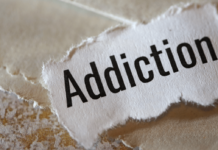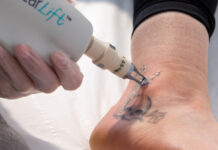
Not everyone knows about addiction recovery. That is an odd sentence, isn’t it? It is kind of like saying that not everyone knows about the immune system. To most people, it just makes sense that if you catch something, you can lose it. And if you can lose it, there is a method to it.
But education does very little to prepare people for the harsh realities of being an addict. People, especially young people, and especially people raised in impoverished environments, tend to have little to no understanding of the infrastructure around dealing with addiction.
If they somehow manage to recover from their addiction in this context, then that is reason to laud their willpower and support their endeavors to get better. Few people can overcome drug addiction even with the proper avenues to recovery. But getting off of drug addiction and staying off of one are two entirely different things. In order to stay off one, you need aftercare.
What is Aftercare?
To define aftercare properly, we first need to establish what the standard procedure of treating addiction is like. Addiction is, at its core, a physical ordeal. For that reason, the main thrust of addiction treatment is focused on helping the addict endure the physical rigors of it.
That means taking medications, fixing their diet, exercise, and sleep schedule, and other things that clean their body up. But the body is not the only thing that addiction harms, and the immediate symptoms of withdrawal and detox are not the only way it does damage.
Aftercare does two things: First, it focuses on healing the mind alongside the body by introducing therapy to the addict. And second, it develops a healthcare routine that respects the unique way that addiction has impacted the addict in question, since everyone is different.

Therapy in Aftercare
Most addicts—an overwhelming majority, in fact—will deal with mental illness before, during, and after their recovery. It is almost impossible to escape for reasons we will go over later.
And one of the greatest mistakes that anyone can make after their initial two to four weeks dealing with detox and withdrawal is assuming that they are done with recovery. The emotional weight of addiction can still weigh on an addict long after their cravings have subsided.
Therapy is a critical part of aftercare because addiction so frequently impacts more than just the addict. The addict’s friends, family, even their pets will be negatively impacted as well. This can breed depression in the addict and a feeling of being a burden that is not easy to shake.
For that reason, you have to seek professional help, and you confront it. You medicate it, talk with professionals about it, and in all other ways address it like you addressed the more obvious symptoms of your recovery. And you never get so prideful to think you don’t need it.
It is worth noting that there is no single, overriding way of doing therapy as aftercare for addiction. If you do not want to do one-on-one therapy, you don’t have to. The same goes for group therapy and anonymous therapy, the two other forms of therapy used by treatment programs. You can even skip therapy if you want. But you should not.

Fitness and Nutrition in Aftercare
We drew a bright line between the physical and mental components of how addiction hurts a person and how that person has to recover. But the reality of the situation is that the physical and mental components are closely interlinked in a complex way that only therapy can fix.
One of the main reasons people get addicted to anything is because it provides them relief and makes them happy. No one enjoys acknowledging that addiction comes from a place of necessity. But it is true: People have a need to not be in constant pain. People have a need to be happy. And while drugs and alcohol don’t truly fulfill that need, they feel like they do.
The aches, pains, moods, shakes, and disruptions in all other signs of normal health are the symptoms of addiction. But it is the deviation from normal health itself that is the disease.
The chemical process of getting addicted has to be addressed as much as its symptoms, and aftercare is the way to do that. The best way to do that is to establish a long-term health routine.
That includes a healthy diet, a sustainable pattern of exercise, and a solid sleep schedule. It is important to note, however, that all of these things are more flexible than usual. You are not dieting to look good; you are not exercising to bulk up, and you are not scheduling your sleep to turn yourself into some hyper-efficient Silicon Valley life coach.
What you are trying to do is bring your body back to what is stable. It is entirely possible that the only dietary change you need to make is to introduce a few leaves of lettuce to your burgers. Your exercise can be limited to one good walk a day, and your sleep might just need to happen around the same time, even if it is still a struggle to make it a good length of time.
In short, the physical aspects of aftercare are as flexible (and unavoidable) as the mental aspects of aftercare. And without them, you will find cravings creeping back into your life.

Conclusion
Aftercare calls upon the addict, whether that is you or a loved one, to care about themselves in a way that they can’t while suffering from an addiction. When a person has an addiction, the substance to which they are addicted takes priority over everything. Even life itself.
Recovery is about putting yourself first. But aftercare is about putting life first. It is about making yourself into a person who does not need whatever you were addicted to. If you need any help getting started with either recovery or aftercare, don’t hesitate to reach out to us here: https://epiphanywellness.com/











